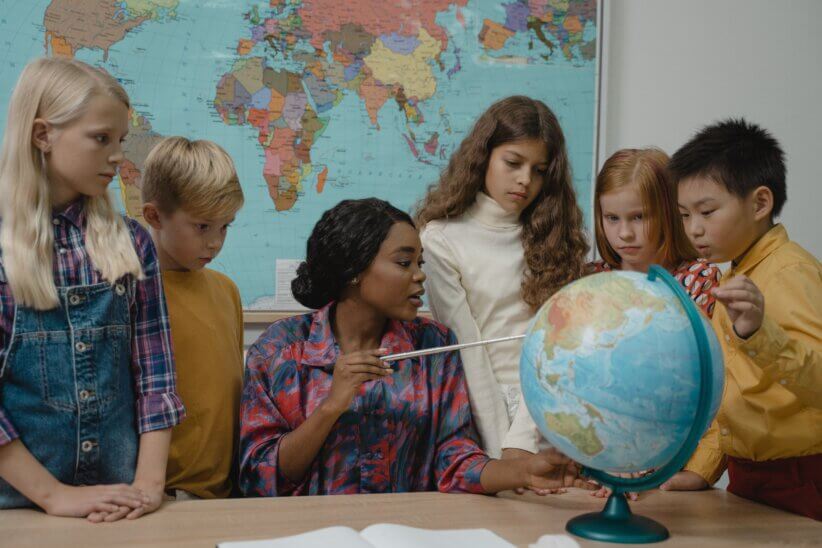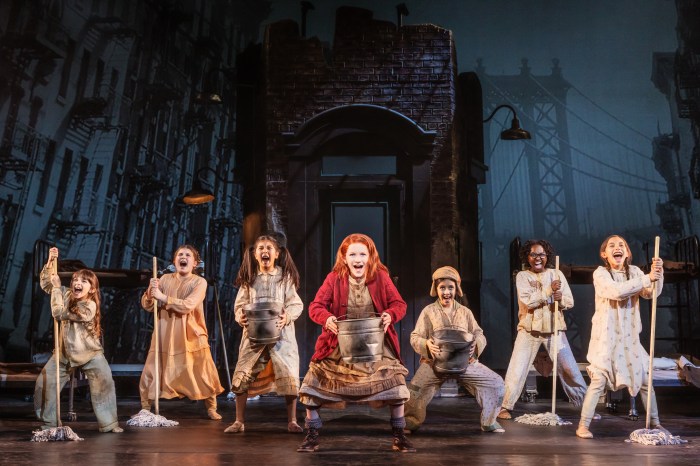
Florida vs New York Education : What NYC Parents Need to Know the System Here
It’s hard to read the news lately without seeing Florida Governor Ron DeSantis in the headlines.
While the Republican prepares for a presidential run, Floridian parents are navigating a flood of new policies that will affect their children’s education. From book bans to caps on gender discussions in the classroom, parents in the Sunshine State have a lot to process.
From a thousand miles away, what do New York parents need to know about the controversy in Florida? And could these heavy-handed policies ever be imposed in the Empire State?
The Controversy in Florida: What do New York Parents Think?
First, let’s break down some of the latest education laws and policies in Florida, what the concerns are, and what New York parents think as DeSantis keeps his eye on the White House.
The Parental Rights in Education Law (often referred to as the “Don’t Say Gay Bill”)
This law went into effect last year. It prohibits classroom instruction on sexual orientation or gender identity in kindergarten-third grade, as well as instruction that is not age appropriate for kids.
It requires school districts to adopt procedures for notifying parents if there is a change in services from the school regarding a child’s mental, emotional or physical health or well-being.
“Parents’ rights have been increasingly under assault around the nation, but in Florida we stand up for the rights of parents and the fundamental role they play in the education of their children,” DeSantis said last year when he signed the bill into law. “Parents have every right to be informed about services offered to their child at school, and should be protected from schools using classroom instruction to sexualize their kids as young as 5 years old.”
But many parents—including those from NYC—have described the law as a way for DeSantis to limit education and what teachers are allowed to teach.
“I think it’s terrible what’s going on in Florida,” Mike Colombo, a father from NYC, said. “It started with the Don’t Say Gay Bill last year, which was designed to specifically target not only LGBTQ+ children, but LGBTQ+ parents as well.”
Stop Wrongs to Our Kids and Employees Act (also referred to as “Stop WOKE)
This bill bans the teaching of critical race theory (CRT) principles.
Definitions of CRT can vary, depending on whom you ask, but Education Week describes it as having the “core idea that race is a social construct, and that racism is not merely the product of individual bias or prejudice, but also something embedded in legal systems and policies.”
Julia Lorusso, a mother of two from NYC, said she’s not concerned about the controversy in Florida or Stop WOKE. She’d even like something similar to be implemented here.
“There is a time and place for Black history, but not as a substitute for traditional curriculum,” she said.
But Colombo, who’s also a parent, doubled down on his opinion about DeSantis, calling many of his education policies a “war against true freedom and education.”
Book Banning
According to many parents and teachers in Florida, DeSantis is emptying school library shelves, voiding important historical works. According to DeSantis, it’s a “hoax.”
The governor issued a statement last week that the only books pulled from schools have been pornographic or violent in nature. (You can see a video that explains more in the statement.)
But parents and education advocates in Florida say the state is banning much more than pornographic materials. Photos of empty bookshelves in Florida flood social media and national news outlets.
According to a recent article by Pen America, some teachers have been told to suspend access to their classroom libraries so books can be vetted by a media specialist for approval first.
The controversial policies are flowing outside the classroom, too.
In November, Florida medical boards voted to ban gender-affirming care to treat gender dysphoria in kids, even as the American Academy of Pediatrics have endorsed puberty blockers and similar treatments to treat the condition, the Washington Post reports.
Can Florida Education Policies ever be Enacted in New York?
The short answer is: No, at least not right now.
But of course, with any state issue, it usually depends on the elected officials in office. New York is generally considered a progressive state, and Florida is more conservative right now.
So the chances of New York following Florida suit aren’t likely, according to Rachel Potts, a life-long educator and director of student services at AtomicMind, a New York-based education technology company that helps students navigate the college admissions process.
“The policy makers at the state and local levels in New York are unlikely to support these kinds of restrictive policies,” Potts explained. “I wouldn’t say it’s impossible because as we know, the landscape is constantly changing.”
Potts added that NYS doesn’t have an overarching mission of restriction. But rather, one of expansion.
“I will say that one thing that has been a tenet of the NYS Department of Education is that it really articulates commitment to making sure that all students in NYS have access to an education that’s inclusive, includes critical thinking and to really becoming global citizens,” Potts said.
The NYS Education Department didn’t respond to multiple inquiries from New York Family. But, the city’s Department of Education (DOE) explained that banning race and gender discussions or books in the classroom aren’t part of its curriculum.
“In a city this diverse, it is critical that our students see themselves reflected in the lessons we teach in our schools,” Nicole Brownstein, director of media relations for NYC public schools, said. “Banning these types of discussions in our classroom represents the erasure of our students’ experiences. We are committed to honoring our students’ identities and experiences through developing new Hidden Voices curricular resources and providing culturally-responsive professional development training for all of our educators.”
Hidden Voices, the initiative that Brownstein mentioned, is a collaborative effort between New York City Public Schools (NYCPS) and academic institutions, scholars, and community leaders to highlight the stories of the many people whose stories are often left out history books.
To date, the DOE released Hidden Voices curricular resources that tell the stories of Asian Americans and Pacific Islanders and the LGBTQ+ community. More are in development, Brownstein explained.
The DOE also explained that critical race theory is a legal theory taught in law schools, adding that the city doesn’t run any law schools.
Potts added that policies such as the ones being enacted in Florida, creates a less inclusive, less safe and less welcoming space for students and parents.
“The research tells us if kids don’t feel supported and safe, it directly impacts their academic learning,” she said.
How Can New York Parents Get More Involved in Education Policy?
Education experts we spoke to shared some tips for parents on how to get more involved in their child’s education and local education policy:
Vote
In many ways, state and local policies impact citizens faster and more directly than federal policies do, no matter who is in the Oval Office.
“Vote for people on your city council. Those people are going to have much more say and impact into what students are learning than people in Washington,” Potts said.
Voice Your Concerns
Go to board of education meetings whenever you can, or attend at least one during the school year. Whether your child is in kindergarten or high school, these meetings provide great opportunities to voice your concerns, or even just listen to what other parents and educators have to say.
Volunteer
According to the Public School Review, if you have time, volunteering at your child’s school is great for your child’s academic success. Volunteering is also a great way to make a positive impact at the school.























